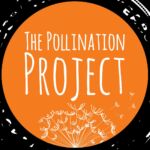Northern Ghana is a region that faces many intersecting challenges: severe poverty, illiteracy, resource scarcity, a growing population, and job loss due to deforestation, just to name a few.
In the face of all these circumstances, of what value is the simple act of planting a tree? Can a tree help meaningfully serve a community? The answer is yes.
Heather Heckel and a team of volunteers at Engage Globally have worked over the last year to plant 150 fruit and nut trees around schools, and another 80 trees at homes and communities. They worked with students in the villages of Kulaa and Taha, who learned how to plant and care for these new trees which now provide shade, erosion control, and food to these areas. The project involved the entire village, awakening the enthusiasm of adults and the joy of children, eliminating differences and allowing the village to embark on a path of renewal and hope.
Choosing to plant a tree is never a trivial gesture, but a conscious vision of the present and an investment in the future. The choice to give life to a forest is proof of extraordinary foresight and love for the land. In a barren landscape, even a small grove of trees whose greenery dots the horizon is a most welcome and hopeful sight.
We live in an era in which we have become accustomed to thinking globally; today everything is global, including problems like climate change, pollution, deforestation, and inequality. We feel involved and, at the same time, many step away from taking an active part in the solutions. At The Pollination Project, what we have seen in working with changemakers and small communities is the existence of a different vision, focused on solutions for so-called “global” problems from a local dimension, with interventions that benefit communities and individuals directly.
Our friends in Ghana are proving this, working hard locally to be able to “engage globally”.


